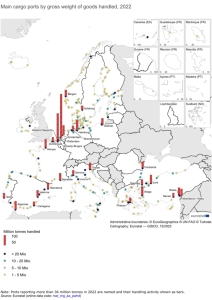EU customs reform. Temporary goods up to 90 days in storage at an EU seaport
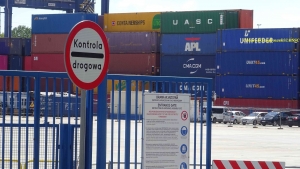
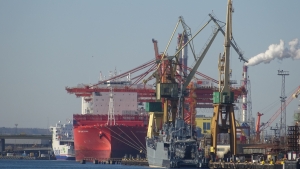
 By Marek Grzybowski
By Marek Grzybowski
In February, the European Parliament will decide on customs regulations at the EU borders. These will be important decisions for the operations of seaports and the operators, forwarders, maritime agents, customs agencies and offices operating therein. a number of concerns related to the new Customs Code,” says ESPO management.
More than 3.5 billion tons of goods are transhipped annually in European ports. Over 35% are liquid cargo. In container terminals, cranes in major EU ports handle approximately 96 million TEUs annually.
Many major container ports act as hubs from which goods in containers are transported by feeders to destination ports. Bulk and liquid cargoes are also not always delivered directly to destination ports. This means that the problem of customs and commercial goods handling in sea ports is both operational and strategic in nature.
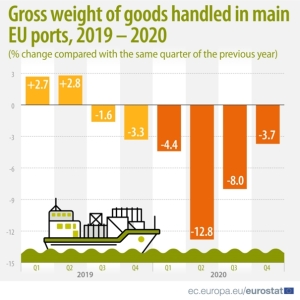
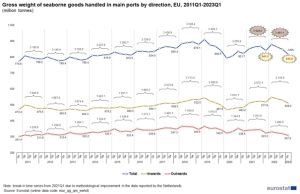
EUR 25 billion from customs duties to the EU budget
– The tightness of border crossings and the importance of customs duties for the EU are important. Its scale is demonstrated by the fact that 75% of customs duties collected by EU Member States goes to the EU budget in the form of EU own resources. In 2022, EUR 25 billion from customs duties was transferred to the EU budget, which constitutes approximately 10% of the EU’s total revenues in the year, informs Pieter Baert from EPRS (European Parliamentary Research Service).
Some countries receive more revenue from tariffs than others. Four Member States (Germany, the Netherlands, Belgium and Italy) contribute more than half of customs contributions to the EU budget. For comparison, over EUR 2 billion annually goes to the EU budget from Spain, and approximately EUR 1.3 billion from Poland.
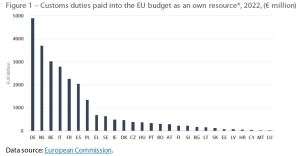
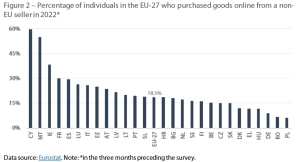
The European Parliament has been debating the European Commission’s proposal for some time. She proposed in May last year. adoption of a new EU regulation on the Union Customs Code. – In the case of European ports, the main and first concern related to the Commission’s proposal is the drastic shortening of the temporary storage period from the current 90 to 3 days – highlights the main threat to European logistics ESPO.
Taking into account the reservations of forwarders, commercial and agency companies and operators, a group of members of the European Parliament dealing with this issue called for the restoration of the 90-day period of temporary storage of goods at border points. This compromise was adopted at a meeting of the Committee on the Internal Market and Consumer Protection (IMCO).
 February 14 this year The IMCO committee announced that it is preparing a draft report on the proposed regulation establishing the Union Customs Code and the Customs Authority of the European Union. The rapporteur was Deirdre Clune (PPE). The INTA committee is involved under Art. 57 of the Regulations. The draft report was presented to the committee on 13 November 2023 and is expected to be voted on in committee in February 2024.
February 14 this year The IMCO committee announced that it is preparing a draft report on the proposed regulation establishing the Union Customs Code and the Customs Authority of the European Union. The rapporteur was Deirdre Clune (PPE). The INTA committee is involved under Art. 57 of the Regulations. The draft report was presented to the committee on 13 November 2023 and is expected to be voted on in committee in February 2024.

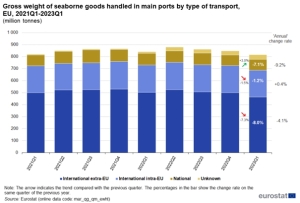
Goods at the borders are safe and under control
Ms Deirdre Clune stressed in the communication that “it is important that goods entering the internal market are safe and meet the necessary requirements, and that customs procedures are effective and not burdensome for businesses.” Furthermore, the rapporteur argues that some provisions should apply earlier, such as the proposed launch of the Customs Data Center. It should be accompanied by a pilot phase to ensure its effective and efficient operation.
 For example, in 2022 alone, a total of approximately 14.4 tons of cocaine were confiscated in Germany during customs inspections. In the customs area of Hamburg it was 9.7 tonnes, and the customs office in Bremen, which supervises the port in Bremerhaven, detected and confiscated 1 tonne – said Member of Parliament David McAllister (PPE).
For example, in 2022 alone, a total of approximately 14.4 tons of cocaine were confiscated in Germany during customs inspections. In the customs area of Hamburg it was 9.7 tonnes, and the customs office in Bremen, which supervises the port in Bremerhaven, detected and confiscated 1 tonne – said Member of Parliament David McAllister (PPE).
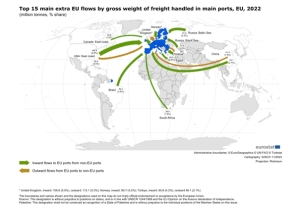
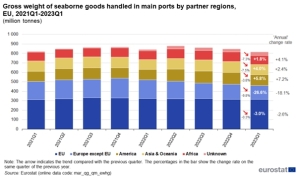
Belgian authorities recently reported that customs seized 116 tonnes of cocaine at the port of Antwerp in 2023, setting a record for the second year in a row. The port of Antwerp has become the main gateway for Latin American cocaine cartels to the continent. Another five tonnes of cocaine were seized last year at the port of Zeebrugge, which is part of the Antwerp-Bruges port complex, said Finance Minister Vincent Van Peteghem.
In mid-February this year. Spanish police seized eight tons of cocaine hidden in a fake power generator in the port of Algeciras. According to the Ministry of Finance, the container containing the drugs was transported from Suriname to Panama and then on to Algeciras, a route carefully chosen to avoid detection.
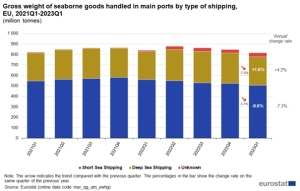
Customs platform and one window
According to the draft report, EU customs should create a platform where authorities, economic operators, citizens and consumers can report non-compliant goods. At the same time, Regulation (EU) No 2022/2399 on the single customs window is repealed and its provisions are added to the existing proposal, thus creating a single common customs framework.
According to ESPO, “temporary storage for a period of 90 days plays a key role in ensuring the smooth flow of cargo through ports, in particular when other elements of the logistics chain do not provide timely data necessary to place the goods under a customs procedure.”
Therefore, interim storage is also crucial for transshipment operations in hubs. This involves the movement of containers to an intermediate destination, where they are transhipped between two ships and then sent to another (final) destination, including non-EU ports.
– In fact, the ‘temporary storage’ status should be seen as a useful ‘administrative waiting room’ where the necessary information/data can be obtained or, in the case of transhipment, requested to collect the cargo and/or wait for the vessel to continue its voyage to the final destination of the goods – emphasizes ESPO.
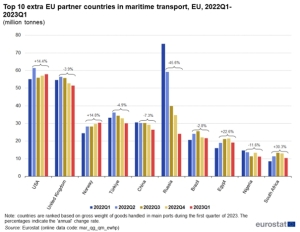
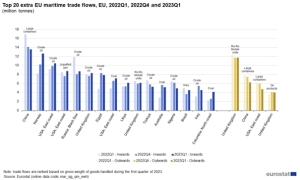
Time for cargo – 90 days
According to seaport representatives, “A shortened temporary storage period would leave an unacceptable amount of goods without an appropriate customs procedure, which would force terminals and shipping lines to be responsible for placing the goods under a customs procedure. For European ports, shortening the current temporary storage period, as originally proposed by the European Commission, is neither acceptable nor practical.”
 – We very much appreciate the support of the rapporteur and other members of the European Parliament on the 90-day temporary retention period. Shortening this period would both hamper the smooth flow of cargo through ports and would again place some European ports on an unequal playing field compared to neighboring non-EU ports, says ESPO Secretary General, Isabelle Ryckbost.
– We very much appreciate the support of the rapporteur and other members of the European Parliament on the 90-day temporary retention period. Shortening this period would both hamper the smooth flow of cargo through ports and would again place some European ports on an unequal playing field compared to neighboring non-EU ports, says ESPO Secretary General, Isabelle Ryckbost.
Ryckbost says on behalf of European seaports: “We hope that Parliament, and at a later stage also the Council, will continue to support this issue. This would allow us to fully support the proposal and its ambition to take the Customs Union to the next level. In the current geopolitical and geoeconomic context, the effective functioning of customs authorities is more important than ever.”
ESPO initiatives are supported by many other European institutions. The organization’s management said it “welcomes the recent adoption of the opinions of the Committee on Budgets, the Committee on Budgetary Control and the Committee on International Trade, which will also contribute to strengthened customs controls, improved financial supervision, enhanced cooperation and modernized, more harmonized governance across the EU.”
In addition to restoring the 90-day temporary storage period for goods, ESPO particularly supports changes that ensure synergies between the Customs Data Center and the EU Maritime Contact Point. What is important here is “minimum customs data requirements and ensuring legal continuity with regard to the implementation of the existing Union Customs Code”.
It is emphasized that “ESPO remains open to further dialogue with the Commission, the European Parliament and the Council in order to find workable solutions that contribute to trade facilitation and the effective and uniform application of the EU customs legal framework.”
As part of the overall customs reform, the EU Commission presented on 17 May 2023 a proposal to establish an EU customs authority and customs data center, accompanied by an impact assessment. – The aim of the proposal is to create a customs union that is effective, geopolitical and forward-looking. In addition to a number of other provisions, two key provisions in the proposal include the creation of an EU customs authority and an EU customs data center, says the Commission.
According to the initiators of the new solutions, the EU customs data center should become the “face and driving force” of the new customs union, consolidating the previously dispersed digital space used to perform customs formalities. The customs data center would act as a centralized IT environment, saving traders the need to interact with 27 different IT environments.
The European Commission stressed that “In addition to the benefits for traders, a centralized data hub would also ensure data integrity, traceability and non-repudiation to customs authorities, thereby strengthening customs control and the fight against customs fraud, smuggling and violations of standards.” We will learn about the effects achieved as a result of taking into account the demands submitted by various organizations, including ESPO, after the publication of the documents voted by the European Parliament in February this year.
